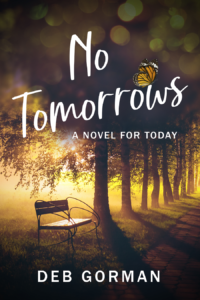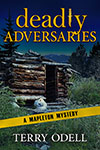By PJ Parrish
So there I was, on a panel at the Miami Book Fair. This was decades ago, and I was still a novice — I think my third book had just come out — and how I snagged a spot on this panel I’ll never know. My stuff was out only in paperback original, and back in those days, well, that was lesser-than.
I don’t remember the title of the panel. I do remember it was something smug-sounding. You know, like — Voice and Validity In Post-Mo Femme Fiction. Okay, I made that up, but dontcha just wanna slap whoever it is that names some of these panels? Just once, I want to see something like this on a writer’s con program:
- Name Dropping. How To Do It Well, And Badly.
- The Unhappy Authors Panel
- All About Crystals, Rainbows, and Unicorns
- How To Corner And Pitch An Agent In The Lobby Can
- Men Who Cannot Stop Speaking and the Women Who Put Up With It
- Rambling and Off-Color Jokes By Almost-Major Authors
- Enough About Me. What Do You Think of Me?
And the last panel on Sunday morning in the half-empty auditorium because everyone has left early to catch their planes:
- This Is What Authors Look Like Who Drank Too Much Last Night.
I’ve been on that last panel more times than I can count. Hat-tip, by the way, to children’s writer Mette Ivie Harrison whose material (above) I borrowed.
Anyway, there I was. Sweaty, nervous and wedged between Carl Hiassen and some quasi-famous author whose name here I shall not reveal. I was pretty bad at public speaking in those days and sat there like a traffic cone. Our moderator was a dud, but Carl was a pure gent, trying to create a dialogue among us. Sensing my unease, he lobbed a few “what do you think?” softballs my way. One of them was: “Who do you write for?”
My mind blanked. I finally mumbled something into my mic about wanting to entertain readers, and maybe, if I was lucky, to emotional connect with them. Then I made what I thought was an okay joke: “And it wouldn’t be bad if I made a little money doing it.”
The audience, thank god, laughed. The quasi-famous author on my right grabbed my mic and said: “I don’t write for money. And I don’t write for anyone but myself.”
You know how when you’re in an awkward social situation and you think of a great comeback — two weeks later? What I should have said was “I think they call that literary self-abuse.” But I didn’t. Nobody said anything. Dead silence in the room. Mercifully, the moderator pulled the plug soon after.
I never forgot that author. She had a big name and a couple of big literary awards. She’s dead now, but you can still find her books on Amazon if you look hard. But I never forgot what she said that day,
What a bunch of bull-crap.
Who do you write for? Carl knew the right answer. All of you guys out there know the right answer. Sure, you write for yourself because it’s something you love doing. But it’s like playing the piano or gardening. Why play the piano if there is no one there to listen and be moved? Why toil in a garden unless the moods of passersby aren’t lifted by the roses they see?
And what is so wrong about wanting to make a living doing this? Even if it’s just to keep your dogs in Greenies.
So yeah, guys, write for yourself. It can make you feel dumb at times. It can make you feel wonderful at times. It humbles you, teaches you, heals you, Write because it makes you hear the beat of your own heart. But never, ever, forget that there is someone else out there who wants to hear you. Who might need to hear you. Maybe you’ll just make them chuckle. Or feel less lonely on a bad day. Or maybe you’ll change their life in some small way.
A couple years back, I had a story in a Mystery Writers of Americ anthology called “One Shot.” It was about a man who is emotionally crippled by a haunting childhood memory. The character and his best friend had been playing with dad’s revolver and the gun went off. The memory was, as often is the case for little kids, only half-there, obscured in a haze of pain, fear, and regret. But the adult character remembers the dead boy had been bullied as gay and he comes to realize the boy had killed himself. But a cabal of parents and priests had convinced him it was his fault.
I got an email about a year after the story was published. It was from a father whose gay son had shot himself. The writer told me the story had helped him come to grips with his own guilt and with his decision to leave his church. He thanked me for the story. Even as I write this, I can’t think of him without great emotion.
Don’t be afraid. Don’t be afraid to put yourself in your stories. And when you feel the time is right, don’t be afraid to put yourself and your stories out there. You need to connect.
I ran across this quote the other day, which is what clicked my memory of that poor lonely quasi-famous author, and what inspired this post. It’s from author Ursula K. Le Guin:
“The unread story is not a story. It is little marks on wood pulp. The reader, reading it, makes it live, a live thing, a story.”
Send yourself out into the world. Someone out there is waiting for you.

 The title of this post is not a play on words. As I might’ve mentioned
The title of this post is not a play on words. As I might’ve mentioned 









 Like bang for your buck? I have a
Like bang for your buck? I have a 






 A story is told of a writer reading some bad poetry to a friend in a cold apartment. The only heat was a dying fire. Finally, shivering, the friend cried out, “My dear sir, either put fire into your verses or your verses into the fire!”
A story is told of a writer reading some bad poetry to a friend in a cold apartment. The only heat was a dying fire. Finally, shivering, the friend cried out, “My dear sir, either put fire into your verses or your verses into the fire!”